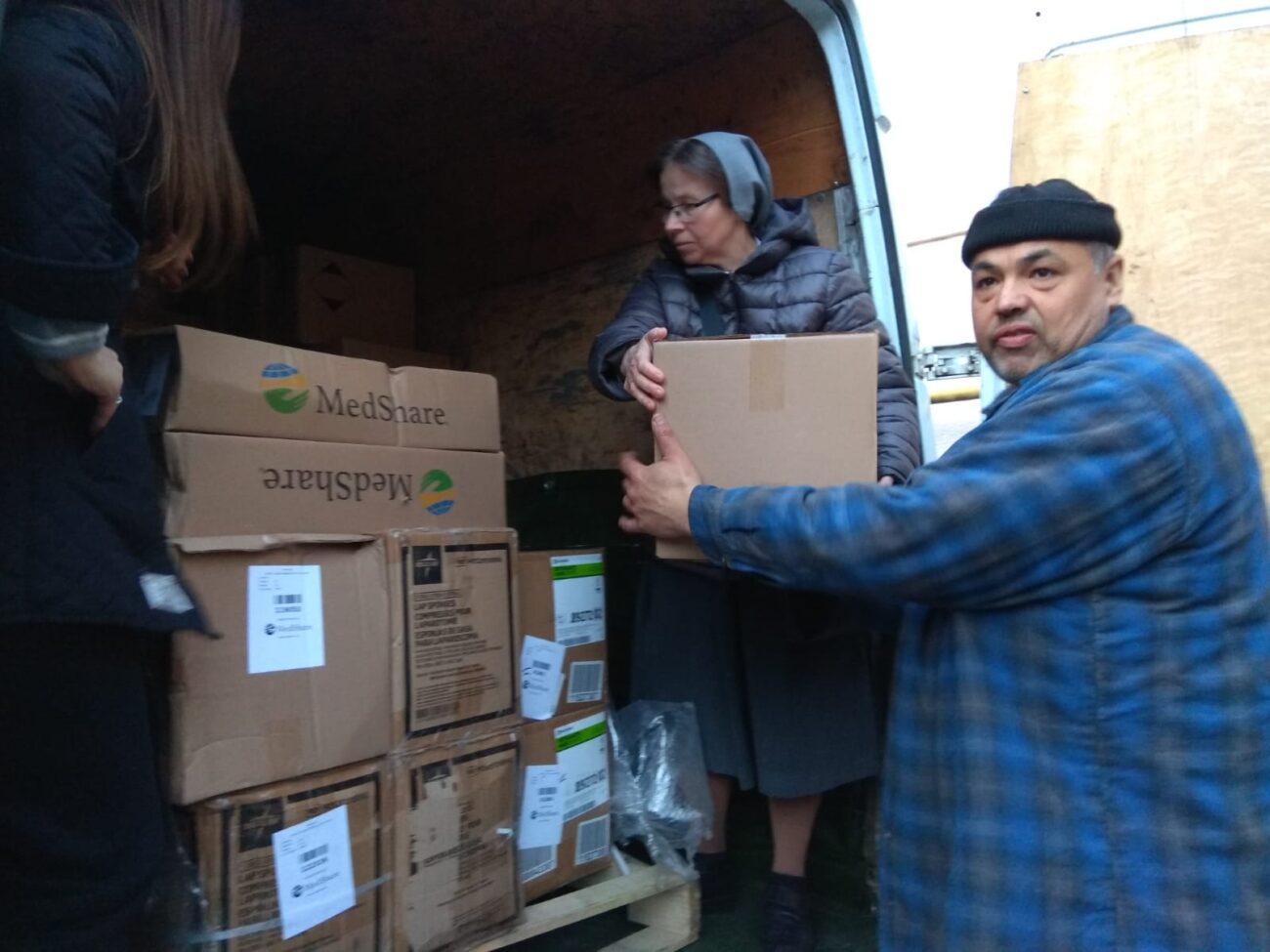
WORLD HUMANITARIAN DAY: Salesian Missions highlights global efforts of Salesians
Salesian missionaries are on the forefront of humanitarian efforts in more than 130 countries.
NEW ROCHELLE, NY (Aug. 19, 2022) Salesian Missions, the U.S. development arm of the Salesians of Don Bosco, joins humanitarian organizations and countries around the globe in recognizing World Humanitarian Day. Celebrated every year on Aug. 19, World Humanitarian Day honors the humanitarian efforts worldwide that support people in crisis.
The day was established by the United Nations to recognize those who face danger and adversity in order to help others. It was designated to coincide with the anniversary of the 2003 bombing of the U.N. headquarters in Baghdad, Iraq.
Salesian missionaries are on the forefront of humanitarian efforts in more than 130 countries around the globe and are perfectly positioned to aid in humanitarian relief during times of natural disasters, traumatic circumstances and civil strife.
“Because Salesian missionaries, sisters and volunteers live within the communities they serve, they are perfectly positioned to respond in times of humanitarian crisis,” says Father Gus Baek, director of Salesian Missions. “Salesian programs help to provide food, clothing and shelter to those in need, and our missionaries remain through the long recovery process to help families rebuild their homes and salvage their livelihoods.”
In honor and celebration of World Humanitarian Day 2022, Salesian Missions is proud to highlight humanitarian and transformative programming in countries around the globe.
UKRAINE
A hospital in Ukraine* has medical supplies thanks to a new partnership between MedShare and Salesian Missions. MedShare is a humanitarian aid organization dedicated to improving the quality of life of people, communities, and the planet by sourcing and directly delivering surplus medical supplies and equipment to communities in need around the world.
The supplies were distributed to ambulances and clinics and used to treat those who have been internally displaced within the country and arrive daily seeking medical attention.
Salesian Missions also launched a Ukraine Emergency Relief Fund that will help provide shelter, nutrition and supplies to refugees in need. This fund is among other fundraising efforts that Salesians in more than 130 countries are doing in support of Salesians on the front lines of this crisis.
BRAZIL
Don Bosco Educational Center, located in Natal, Brazil, in collaboration with the Solidarity Bus Project of the Urban Transportation Companies Union and the Municipal Secretariat of Labor and Social Assistance of Natal, distributed food aid to 300 families of youth who attend the oratory at the center.
The initiative was made possible thanks to food collection activities in the city’s supermarkets that were launched to help people in economically and socially vulnerable situations. More than 700 youth from vulnerable backgrounds attend the Don Bosco Educational Center’s oratory. The center has joined efforts with various public and private partners to address food shortages brought about by the COVID-19 pandemic.
Salesian missionaries in Brazil provide education, workforce development, and social services throughout the country and specifically focus on children with disabilities within several programs. Missionaries help to meet the basic needs of poor youth, including street children, and provide them with an education and life skills to gain employment, break the cycle of poverty and lead productive lives.
INDIA
More than 4,000 people, including 800 families, were provided food kits in the villages around the Ferrando Center for Vocational Training, located in Srirampura, a town and residential suburb of Mysore city in India. The food kits were made possible through donor funding from Salesian Missions. The project was one of many funded by Salesian Missions in an effort to mitigate the challenges brought on by the COVID-19 pandemic.
Missionary Sisters of Mary Help of Christians operate the Ferrando Center for Vocational Training to provide education for poor and at-risk young women in the region. The area surrounding the school is made up of poor villages where people are daily laborers, migrants, widows and children.
The food kits provided to families included rice, toor dal, sugar, oil and salt, as well as prevention measures like soap, masks, sanitizer and medicines. Recipients included mother and daughter Rangamma and Krishnamani. They are migrants from another state and have been forced to beg for food to eat. Rangamma lost her husband in the early days of her marriage and her daughter Krishnamani has disabilities.
Right now, they are both living on the streets and have nothing. They are not able to work and do not have a home of their own. Rangamma is too old to work and Krishnamani is not in a position to go look for work. The food kits were enough to support them for several days while the Salesian sisters are looking for a place for them to stay.
PAKISTAN
Don Bosco Lahore distributed humanitarian aid to 200 Afghan refugee families in the community of Peshawar, Pakistan, thanks in part to donor funding provided by Salesian Missions. The Salesian community offered shelter and basic necessities to 1,500 people, who are mostly children.
The aid was provided with the collaboration and coordination of local authorities, the police, and the city administration, which facilitated the distribution. The initiative was also supported by Don Bosco Switzerland and Salesians in Berlin.
Salesian centers in Quetta and Lahore offer quality education and an innovative teaching style. More than 1,000 students from disadvantaged families attend Salesian schools. Salesians first started providing education in Pakistan in 1998, and today, their centers are considered some of the best education in the country.
Salesian schools provide economic benefits, scholarships and accommodations for students from the poorest families so that education is not only accessible but also an incentive for parents to send their children to school. Pakistan has one of the lowest literacy rates in South Asia at less than 50 percent. Although the country’s constitution acknowledges free and compulsory education between the ages of 5-16, the rule is often not followed in rural areas for those over age 13.
###
Contact: [email protected]
